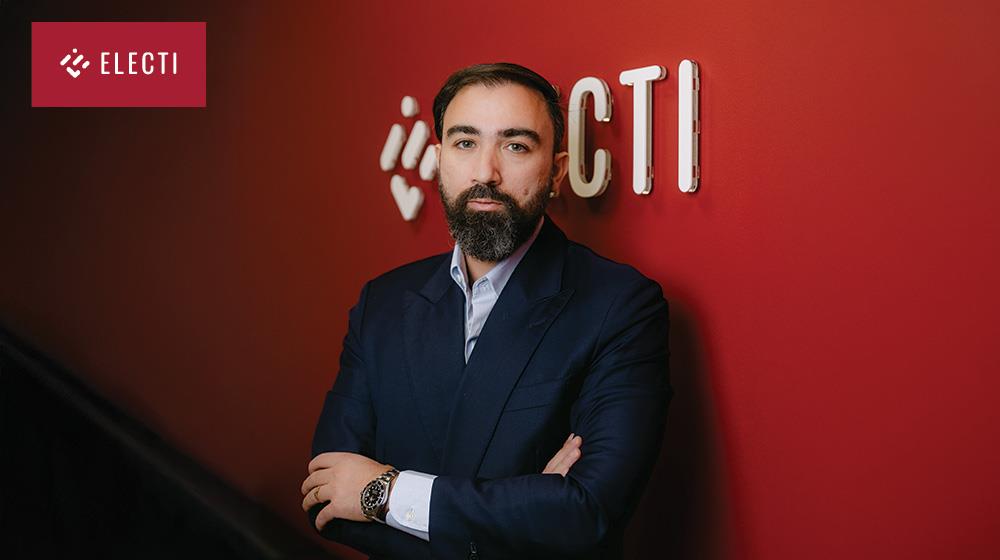Electi Consulting pioneers advanced technological solutions through its expertise in AI, machine learning, blockchain, cryptography and cybersecurity.
Its computer vision technology, proven in autonomous vehicles, enhances defence systems with superior UAV navigation and surveillance capabilities. Drawing from a shipping industry experience, the company’s predictive maintenance algorithms optimise military equipment performance while reducing costs. It leads in Post-Quantum Cryptography, addressing quantum computing threats to traditional encryption methods.
Dr. Theodosis Mourouzis, Managing Director, Electi Consulting Ltd, recently spoke to GOLD magazine about how Cyprus is taking a "quantum leap" for defence.
Our part of the world has long been defined by conflict and uncertainty. Why do you believe that it has now become important for Cyprus to invest in the defence sector?
From our strategic position in the Eastern Mediterranean, we recognise Cyprus’ critical role at the intersection of geopolitical interests and potential flashpoints. Our location – amid increasing military activity and energy resource competition, particularly within our Exclusive Economic Zone – demands modern defence capabilities.
As an EU member state on the southeastern border, we’re committed to strengthening Europe’s collective security through cutting-edge technologies. Our investment in AI, quantum computing and cybersecurity enables us to address hybrid warfare and cyber threats effectively. We’re building a resilient, future-ready defence infrastructure, while establishing Cyprus as a regional hub for technological innovation.
While European defence R&D spending increased significantly – it reached €11 billion in 2023, more than double the amount spent in 2016 – the US and China still outspend the EU. How does this disparity impact your ability to innovate and compete on a global scale? Are there any other structural issues on a European level that need to be addressed?
We face significant challenges in maintaining technological parity with US and Chinese competitors due to spending disparities. While the EU’s increased defence R&D investment is promising, funding gaps impact our ability to pursue large-scale innovations in quantum computing and advanced AI.
We’ve adapted by focusing on specialised tech niches and leveraging EU frameworks like the European Defence Fund and PESCO. However, we recognise that fragmented requirements, complex regulations and limited cross-border collaboration require attention. We advocate for streamlined procurement processes, better integration of national defence industries and efficient technology transfer mechanisms to maximise our investment impact.
On a local level, does the relatively small size of Cyprus’ defence cluster present challenges in competing with larger ecosystems or are there unique strengths you can leverage?
While the relatively small defence cluster in Cyprus faces challenges in scale, budgets and talent pools, we’re turning our size into a strategic advantage. Our agility allows us to adapt quickly to emerging threats and maintain closer collaboration with industry players and government stakeholders.
We’re focusing on developing niche capabilities in cybersecurity, AI applications and maritime defence solutions that align with our strategic location and expertise. Rather than competing directly with larger ecosystems, we’re creating complementary capabilities that make us an attractive partner for international collaboration, proving that small nations can excel in specialised defence sectors.
Cyprus is strengthening its defence ties with nations like the US and France and aims to allocate 2% of its GDP to defence spending. Has this impacted your work? How can Cyprus become a key player in Europe’s defence ecosystem?
We’re actively strengthening our defence partnerships through strategic agreements with France and the United States, notably marked by the lifting of the US arms embargo in 2022. Our commitment to 2% GDP defence spending drives projects across military infrastructure and advanced weapons systems.
To establish ourselves as a key player in Europe’s defence ecosystem, we’re prioritising emerging technologies with dual-use applications. By integrating AI, blockchain and quantum computing into military operations, while investing in STEM education, we’re building a defence-tech ecosystem that serves both security needs and economic development, attracting international partnerships and fostering domestic innovation.
Finally, as drones, robotics and AI take centre stage in the theatre of modern warfare, what do you see as the next defining innovation?
We recognise that while drones, robotics and AI have transformed modern warfare, quantum computing represents the next paradigm shift in defence capabilities. Our focus extends beyond revolutionising military cryptography and communications to enhancing computational power for battlefield simulations and AI applications. We understand that quantum supremacy will provide unprecedented advantages in encryption systems. By combining quantum computing with AI and machine learning, we’re enabling real-time processing of battlefield data for instantaneous decision-making. While advancing these capabilities, we’re prioritising quantum-resistant security measures to protect against emerging quantum-enabled decryption threats.
COLLABORATIONS
Electi Consulting is leading groundbreaking initiatives through PAVE-SCAN, a €2.4 million EU-funded project with 13 partners across 7 countries. The company’s deep learning and computer vision algorithms, integrated with Galileo’s High Accuracy Service, excel in precision positioning and infrastructure monitoring. Through MDigi-I, a €2.8 million Cyprus Research Foundation project, it is revolutionising maritime digitalisation with AI-powered camera systems for traffic monitoring and incident detection.
This interview first appeared in the February edition of GOLD magazine. Click here to view it.









